Python packaging tool Pyintealler packaging py file is windows exe file process and stepping on pit record + practical example
catalogue
Packing and pit stepping records
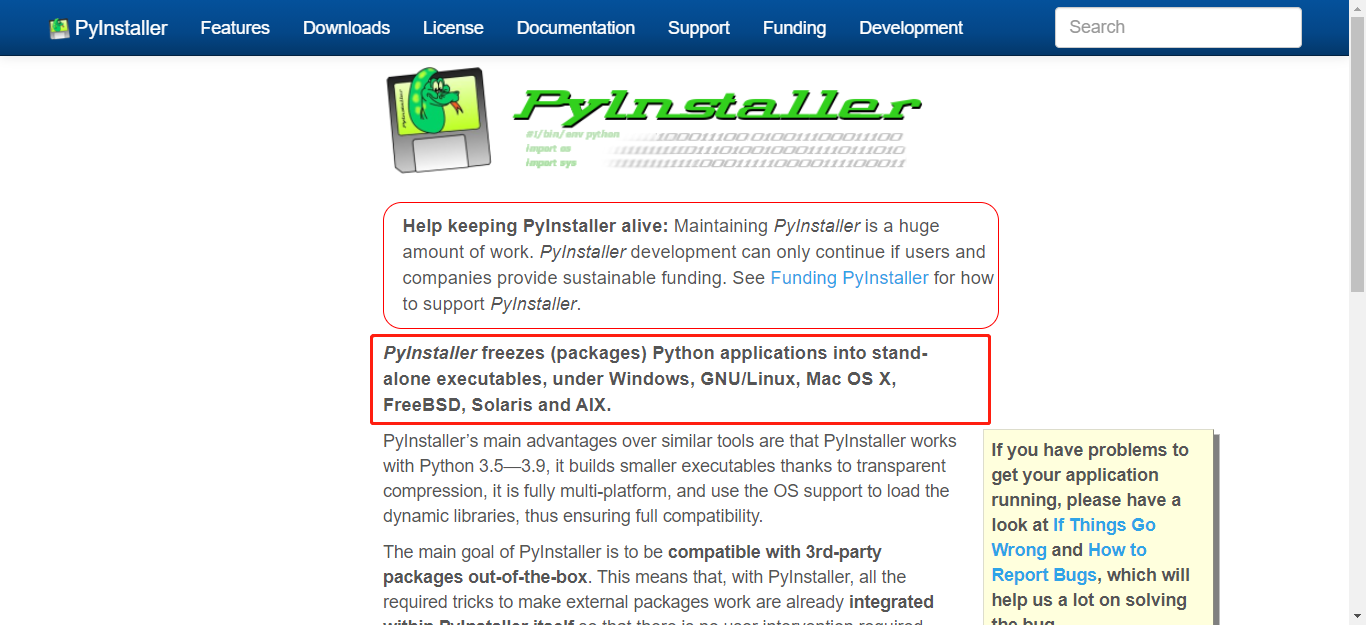
install
#Install Pyinstaller
#A packaging tool similar to pyinstall is Freeze py2exe Pyintealler. The author uses pyinstaller here
pip install PyInstaller
perhaps
pip install pyinstaller
#Package the program
# you_model.py is the python program code you need to package
pyinstaller -F you_model.py
#PyInstaller bundles a Python application and all its dependencies into a single package.
Model building code
#Load the required packages and libraries
import pandas as pd import numpy as np from sklearn.linear_model import LogisticRegression from sklearn import datasets import pickle import os # from sklearn.externals import joblib
#Load data
#Set as_frame model, so the loaded data is in pandas dataframe format, otherwise the model is in numpy array format;
# Load the iris data iris = datasets.load_iris(as_frame = True) # Create a matrix, X, of features and a vector, y. X, y = iris.data, iris.target type(X),type(y)
(pandas.core.frame.DataFrame, pandas.core.series.Series)
#
df = pd.concat([X,y],axis = 1) df.head() df.iloc[:,:-1].head()
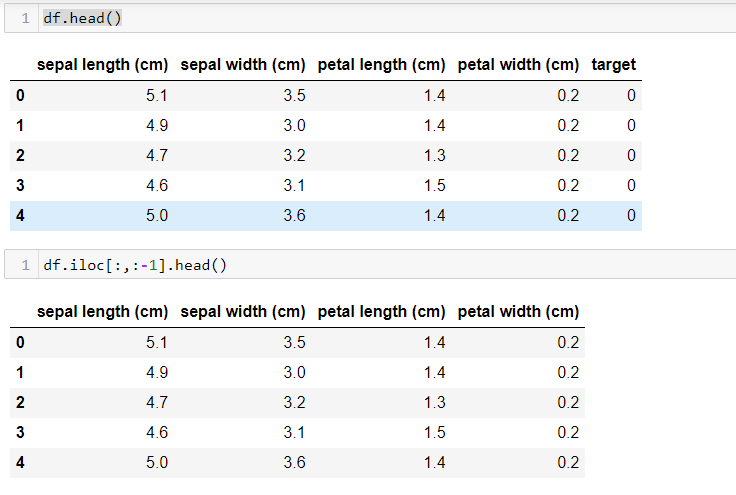
# write data to the file dataset CSV for subsequent testing;
df.to_csv('dataset.csv',index=0,sep=',',encoding='utf-8')#Logistic regression classifier construction, model saving and loading module
# Train a naive logistic regression model
clf = LogisticRegression(random_state=0)
clf.fit(X, y)
import pickle
# save the model we just trained
s=pickle.dumps(clf)
f=open("model_A.pkl",'wb')
f.write(s)
f.close()
f=open("model_A.pkl",'rb')
model=pickle.loads(f.read())
model.predict(X)#Prediction program (preprocessing test data, feature engineering, supplement and other operations, loading model for reasoning), and then package the program
# prediction.py
#prediction
import pandas as pd
import numpy as np
from sklearn.linear_model import LogisticRegression
from sklearn import datasets
import pickle
import os
def inference_process(base_dir):
"""
inference data processing and engineering
"""
file_name = os.listdir(base_dir)[0]
# encoding
data = pd.read_csv(base_dir + "\\" + file_name)
# Reasoning data preprocessing process;
# Data cleaning and feature engineering;
# Data supplement and data transformation;
return data
if __name__ == "__main__":
# Raw data processing
data_dir = r"dataset"
# Path to original table data
data = inference_process(data_dir)
# Call handler
# Model call
f=open("model_A.pkl",'rb')
model=pickle.loads(f.read())
#The results are predicted and output to CSV
y_pred = model.predict(data.iloc[:,:-1])
print(y_pred)
# Result prediction
data['prediction'] = y_pred
data.to_csv('with_prediction.csv', index=0,sep = ',')
print("done!")[0 0 0 0 0 0 0 0 0 0 0 0 0 0 0 0 0 0 0 0 0 0 0 0 0 0 0 0 0 0 0 0 0 0 0 0 0 0 0 0 0 0 0 0 0 0 0 0 0 0 1 1 1 1 1 1 1 1 1 1 1 1 1 1 1 1 1 1 1 1 2 1 1 1 1 1 1 2 1 1 1 1 1 2 1 1 1 1 1 1 1 1 1 1 1 1 1 1 1 1 2 2 2 2 2 2 1 2 2 2 2 2 2 2 2 2 2 2 2 2 2 2 2 2 2 2 2 2 2 2 2 2 2 2 2 2 2 2 2 2 2 2 2 2 2 2 2 2 2 2] done!
Packing and pit stepping records
#Open terminal in anaconda under windows
#Note: cd d: does not work. You need to use d:
#After entering, use the cd command;
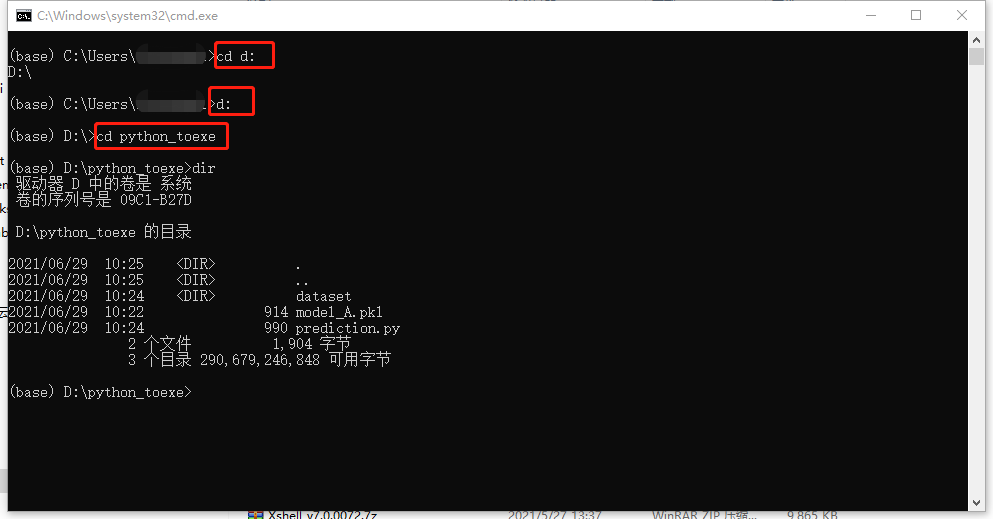
#Run pyinstaller - f prediction py
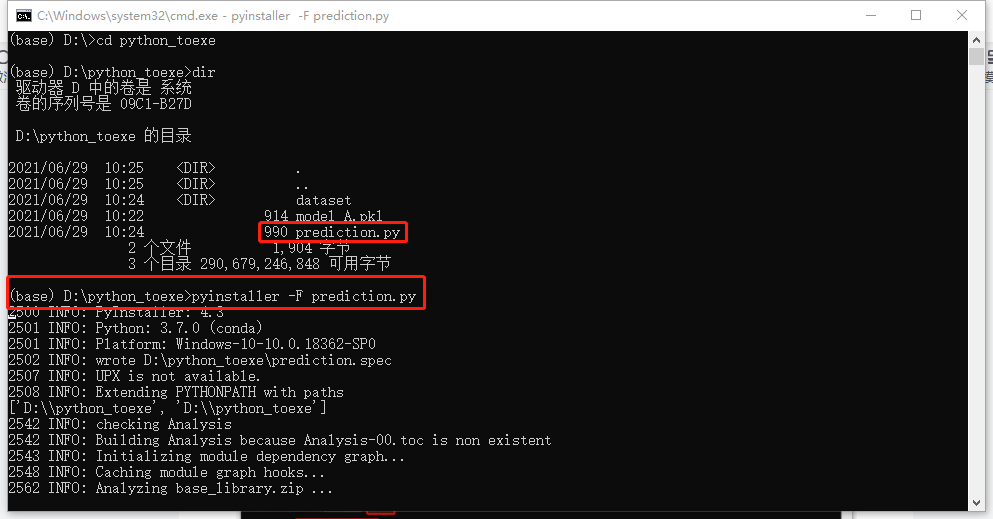
#In case of coding error, remove Chinese characters in prediction
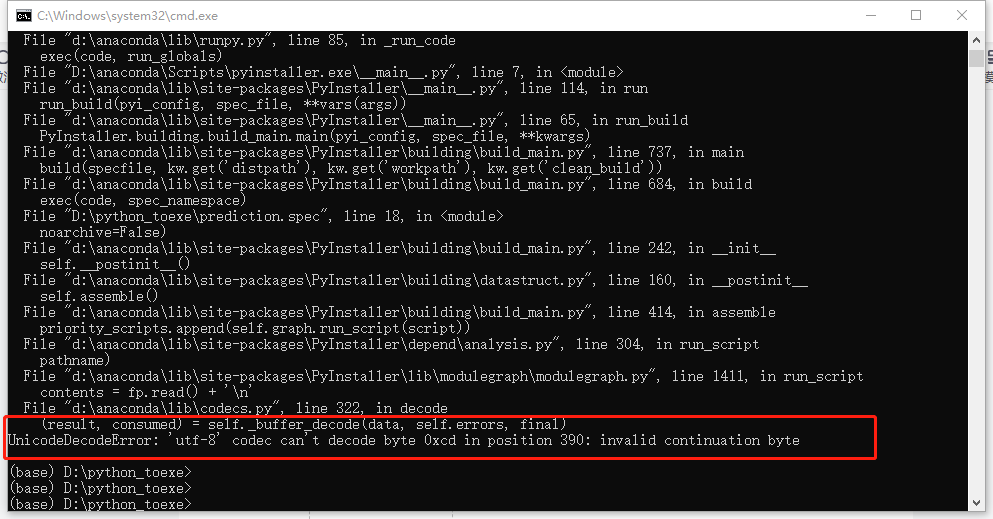
#Don't worry here. You have to wait for a while. The time may vary according to the number and size of packages you download;
#So as long as you don't report an error, just wait a minute;
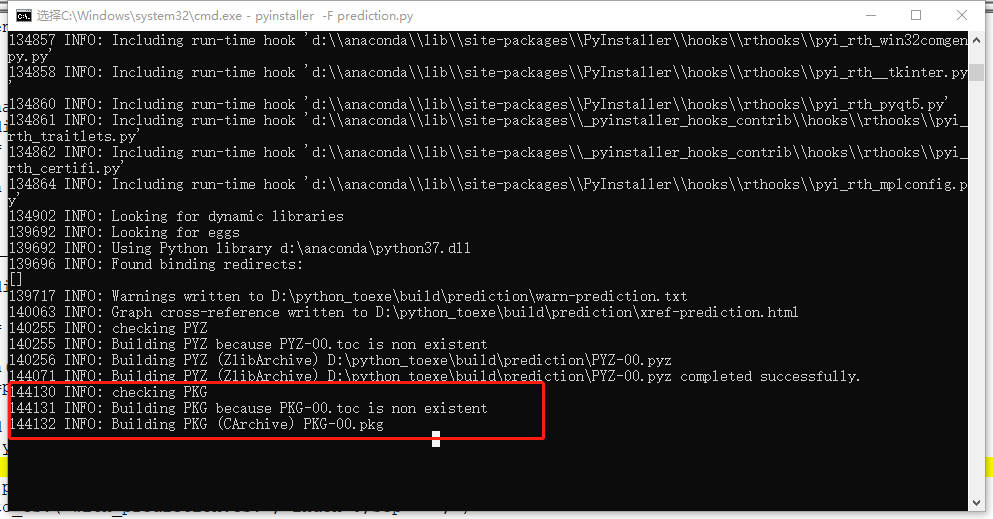
#The following error occurred
win32ctypes.pywin32.pywintypes.error: (2, 'LoadLibraryEx', 'the system cannot find the specified file.')
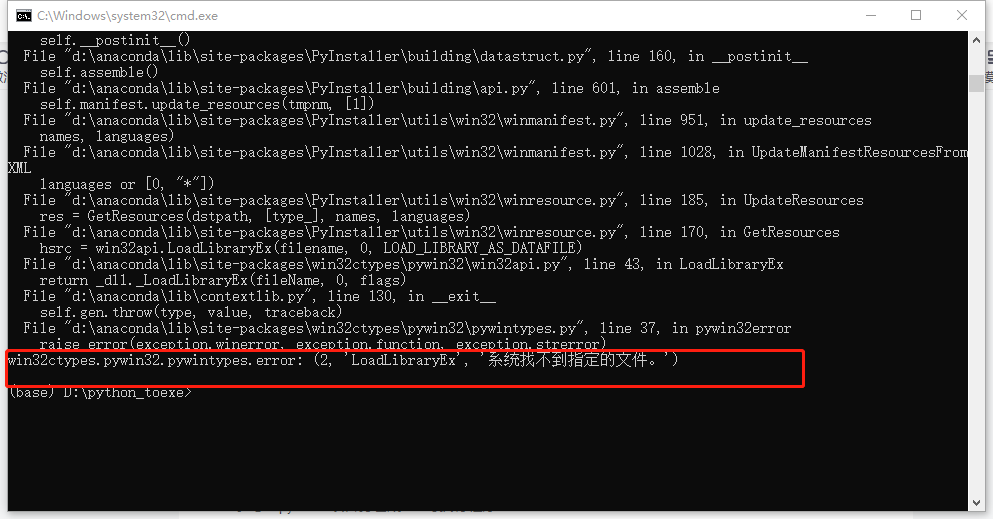
#It is suspected that the temporary file in the original build interferes with the new build. Continue to build after deletion, and the same error still exists;
#Check on stackoverflow and csdn, and you can talk about everything. Finally, the method of reducing the version is adopted successfully
# pip install pyinstaller==3.5
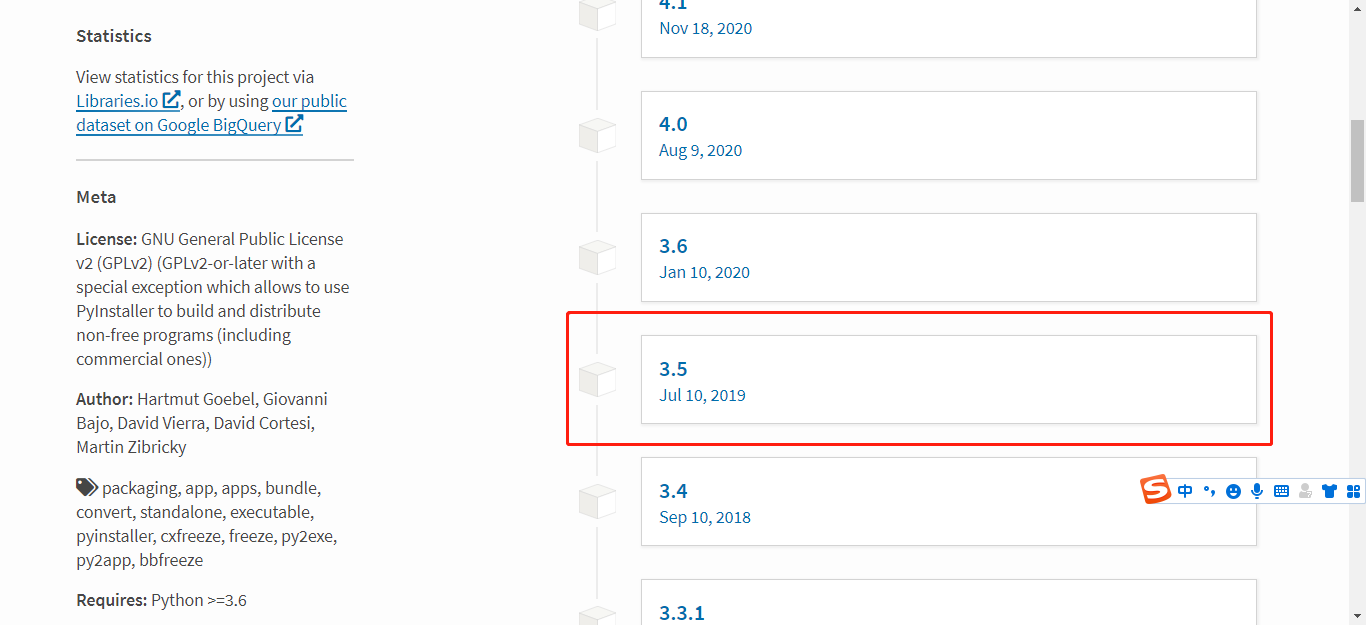
# pyinstaller -F prediction.py
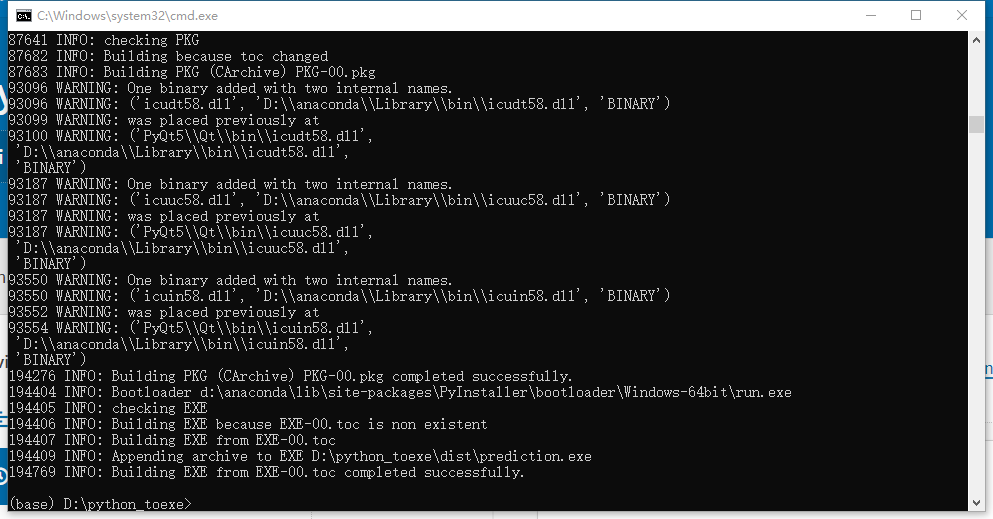
#The packaged file structure is as follows:

#Package generated prediction The EXE file is stored in the dist directory
#Double click prediction Exe file
#The following error occurred:
ModuleNotFoundError: No module named 'scipy.spatial.transform._rotation_groups'
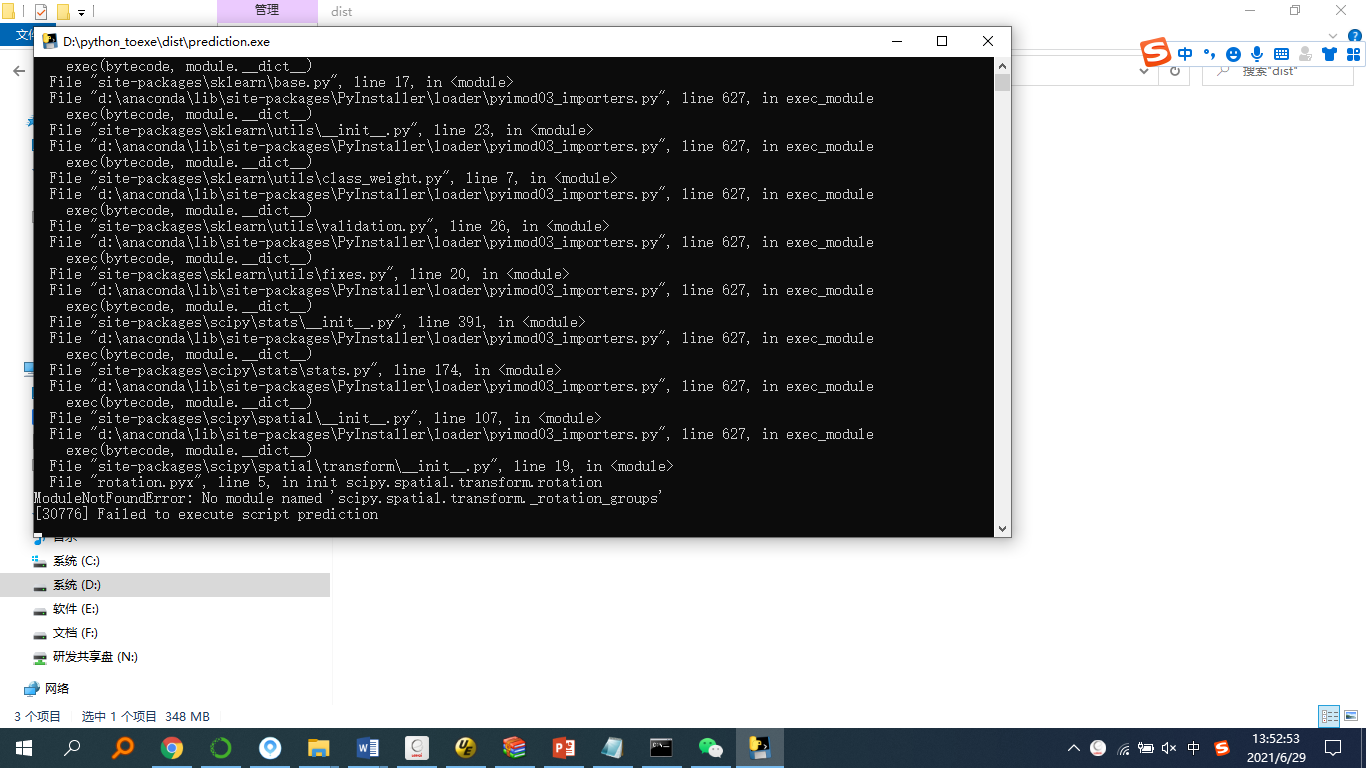
#Add in the main function:
#import scipy.spatial.transform._rotation_groups
#Then the following problems arise:
# ModuleNotFoundError: No module named 'scipy.special.cython_special'
#It feels like a bottomless pit,,,,
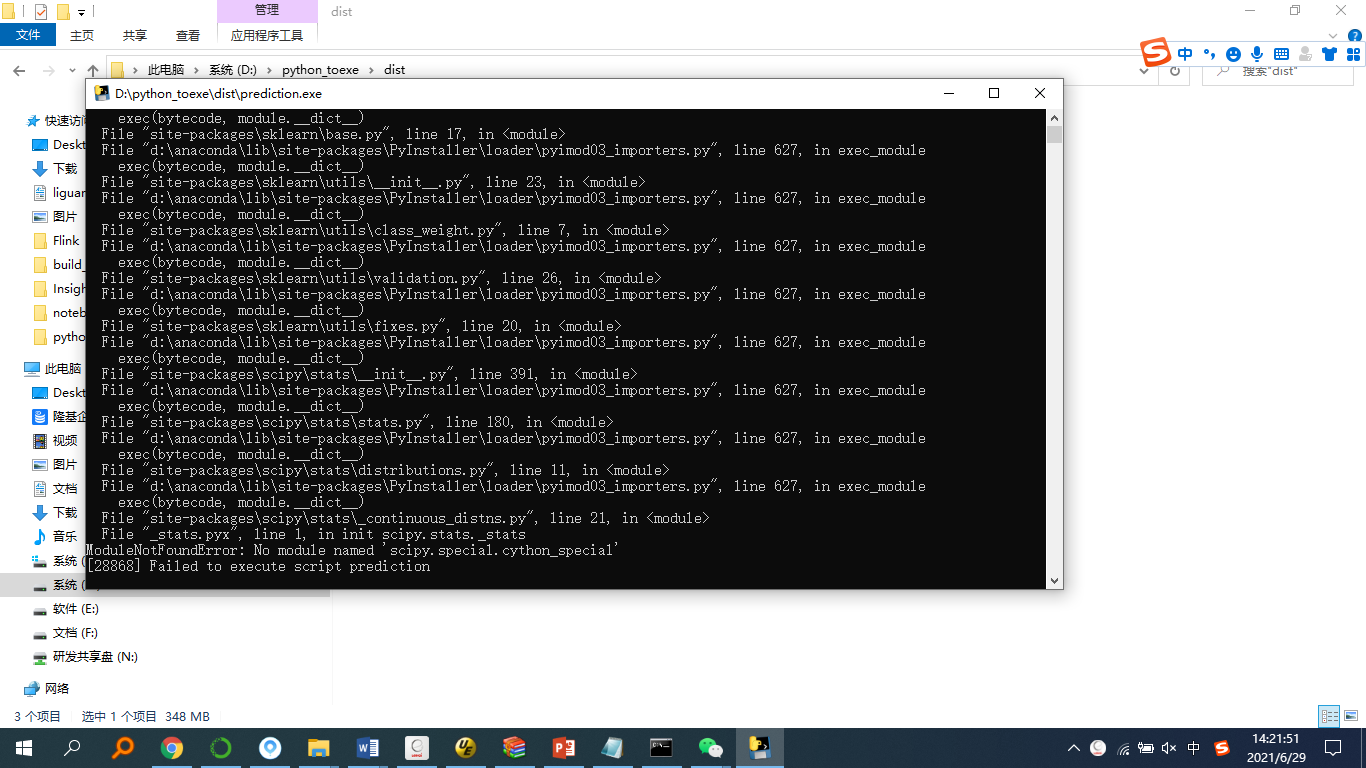
# sklearn.utils._cython_blas
# ModuleNotFoundError: No module named 'sklearn.utils._cython_blas'
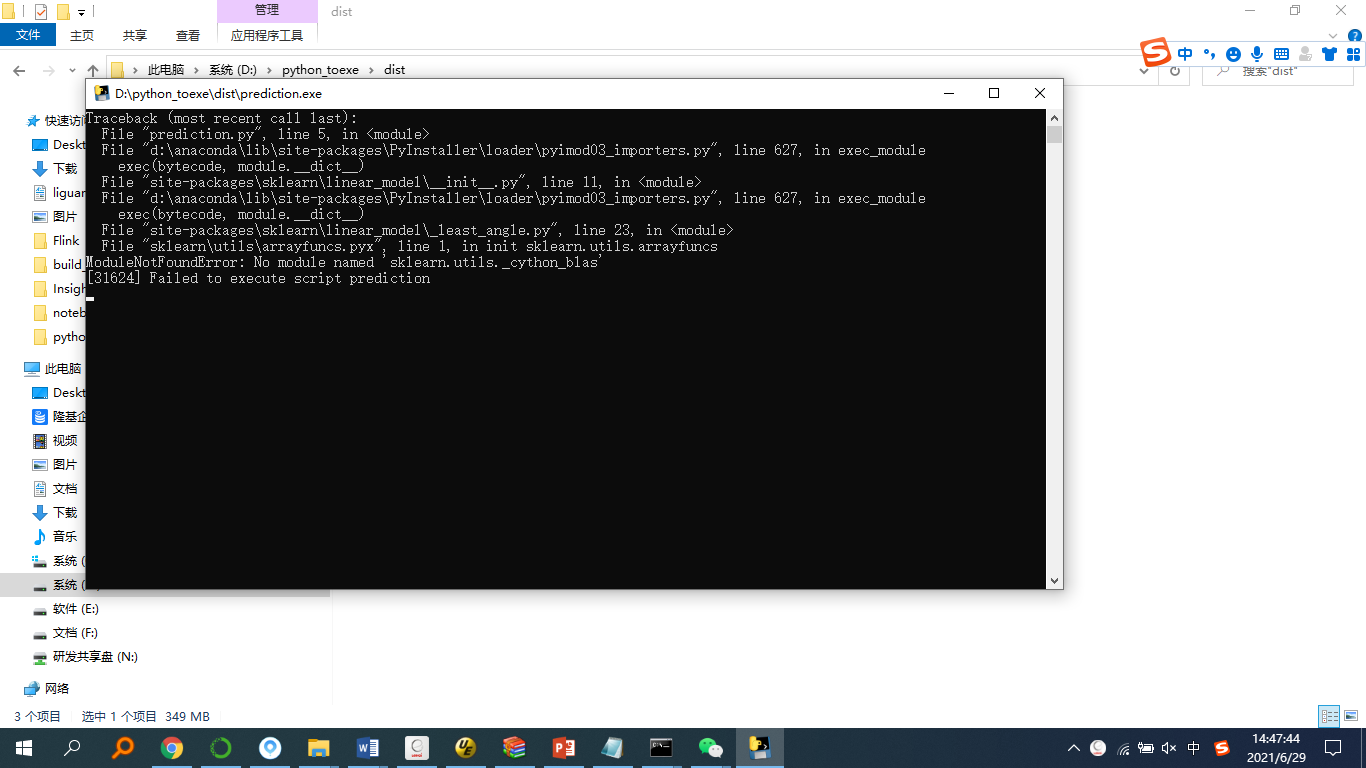
#Then came sklearn utils._ weight_ Vector error
# ModuleNotFoundError: No module named 'sklearn.utils._weight_vector'
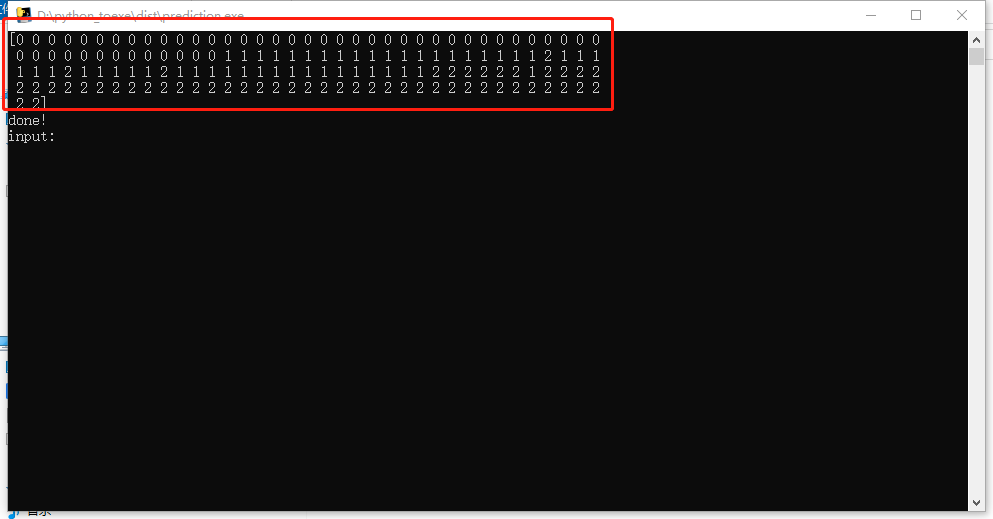
#The final packaging code is as follows:
#The input function is added to prevent the pop-up window from exiting quickly;
input("input:")
#prediction
import pandas as pd
import numpy as np
from sklearn.linear_model import LogisticRegression
from sklearn import datasets
import pickle
import os
def inference_process(base_dir):
"""
inference data processing and engineering
"""
file_name = os.listdir(base_dir)[0]
#encoding
data = pd.read_csv(base_dir + "\\" + file_name)
return data
if __name__ == "__main__":
import scipy.spatial.transform._rotation_groups
import scipy.special.cython_special
import sklearn.utils._cython_blas
import sklearn.utils._weight_vector
data_dir = r"dataset"
data = inference_process(data_dir)
f=open("model_A.pkl",'rb')
model=pickle.loads(f.read())
y_pred = model.predict(data.iloc[:,:-1])
print(y_pred)
data['prediction'] = y_pred
data.to_csv('with_prediction.csv', index=0,sep = ',')
print("done!")
#to keep the process
input("input:")Then try to package and build in the following ways:
pyinstaller --hidden-import scipy.spatial.transform._rotation_groups --hidden-import scipy.special.cython_special --hidden-import sklearn.utils._cython_blas --hidden-import sklearn.utils._weight_vector --onefile prediction.py
OK,
BINGO
reference resources: http://www.pyinstaller.org/
Reference: use pyinstaller to package py files into exe files
Reference: how to switch drive letters on the windows command line
reference resources: Switch drive letter under Windows
Reference: package Python 3 project into exe executable program
Reference: Python installer
Reference: failed to package with pyinstaller and reported error win32ctypes pywin32. pywintypes. Error: (1920, 'LoadLibraryExW', 'the system cannot access this file.')
Reference: pit encountered by python pyinstaller packaging tool
Reference: pyinstaller win32ctypes pywin32. pywintypes. error: (2, 'LoadLibraryExW', 'The system cannot find the file specified.')
reference resources: Pyinstaller win32ctypes.pywin32.pywintypes.error: (1920, 'LoadLibraryExW', 'System cannot access the file')
reference resources: No module named 'scipy.spatial.transform._rotation_groups after compile python script with pyinstaller
reference resources: No module named 'scipy.spatial.transform._rotation_groups after compile python script with pyinstaller